Trump’s vision of America in the world isn’t so great, say critics at home and abroad
Saiko and Max Reynard, a married couple, join the San Francico Women's March on Jan. 21, 2017. Max lived in Japan for five years. Saiko, a Japanese citizen, moved with him to San Francisco in December.
There are moments in a century, when it feels like you can see power shifting. The month of January 2017 felt like one of those times.
There was President Donald Trump, at his inauguration, declaring, “From this day forward, it’s going to be only America first. America first.”
And he continued, as the new leader of a nation that has thrived for most of the past century by reaching out to the world, hammering global trade and connectivity.
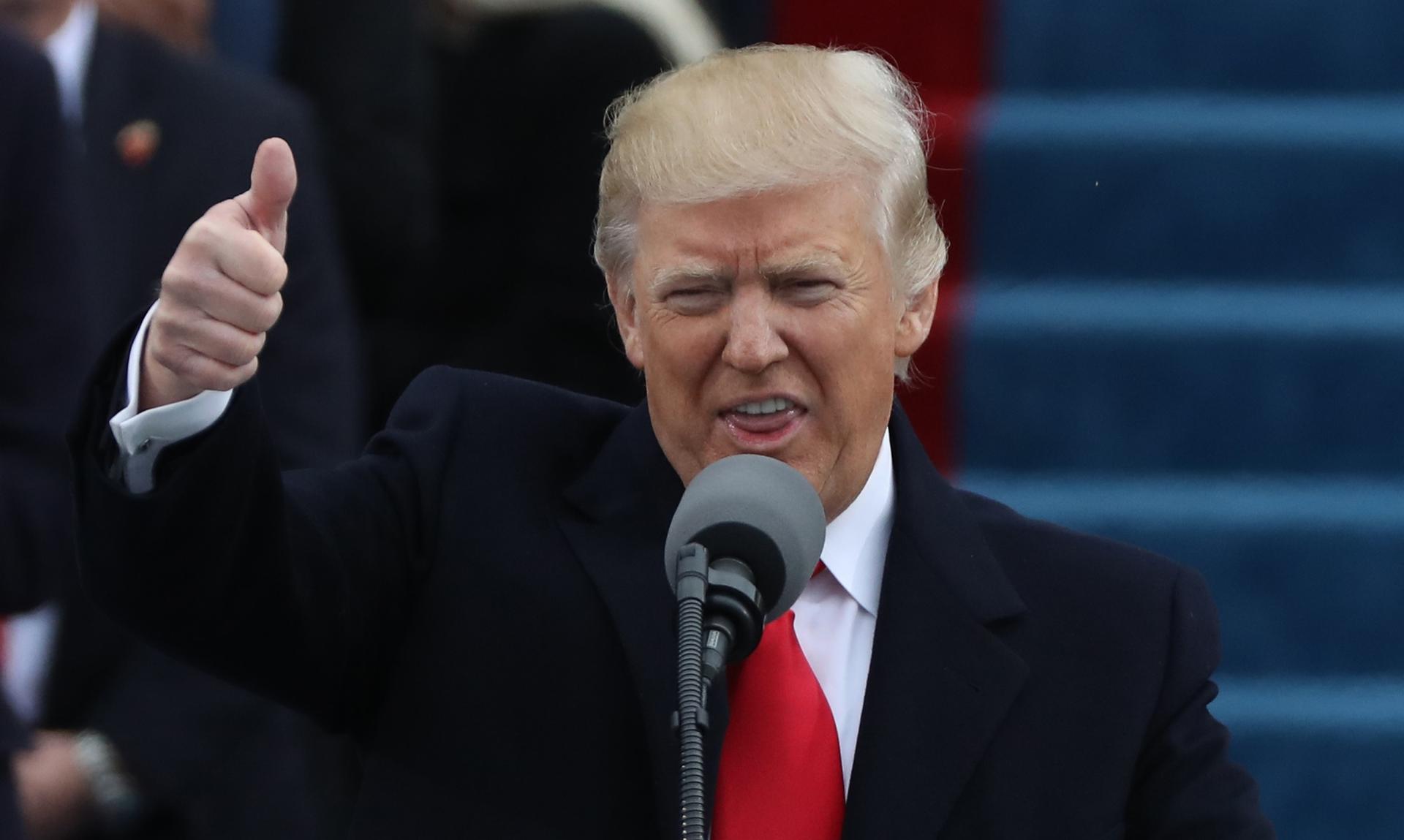
“Every decision on trade, on taxes, on immigration, on foreign affairs will be made to benefit American workers and American families,” he said. “We must protect our borders from the ravages of other countries making our products, stealing our companies, and destroying our jobs. Protection will lead to great prosperity and strength.“
Contrast that with what was said the same week, by Chinese President Xi Jinping at the World Economic Forum at Davos:
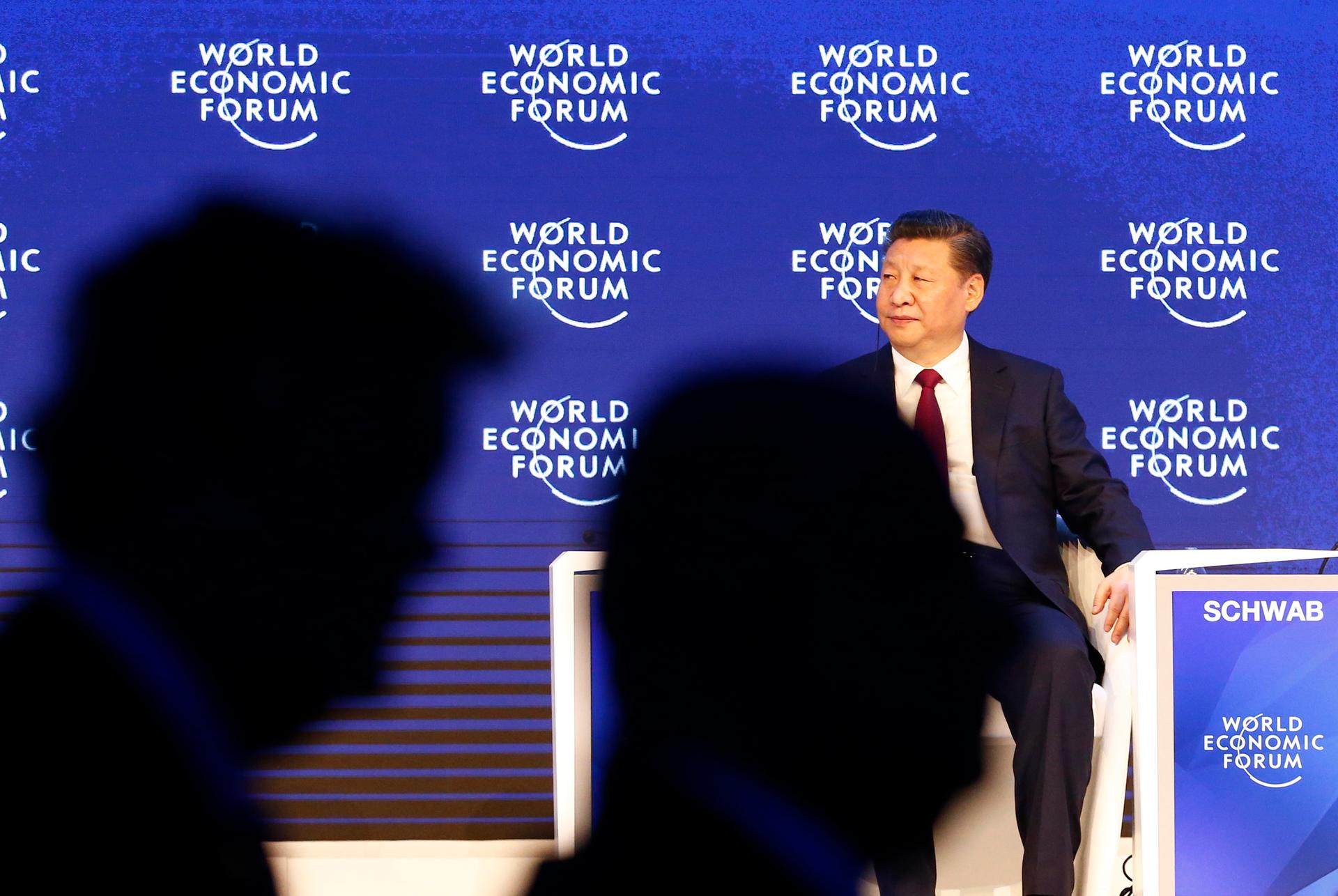
“It is true that economic globalization has created new problems, but this is no justification to write economic globalization off completely,” Xi said. “Rather, we should adapt to and guide economic globalization, cushion its negative impact, and deliver its benefits to all countries and all nations.”
Who would have thought, just months ago, that the leader of China would come off sounding more globally responsible and statesmanlike than the President of the United States?
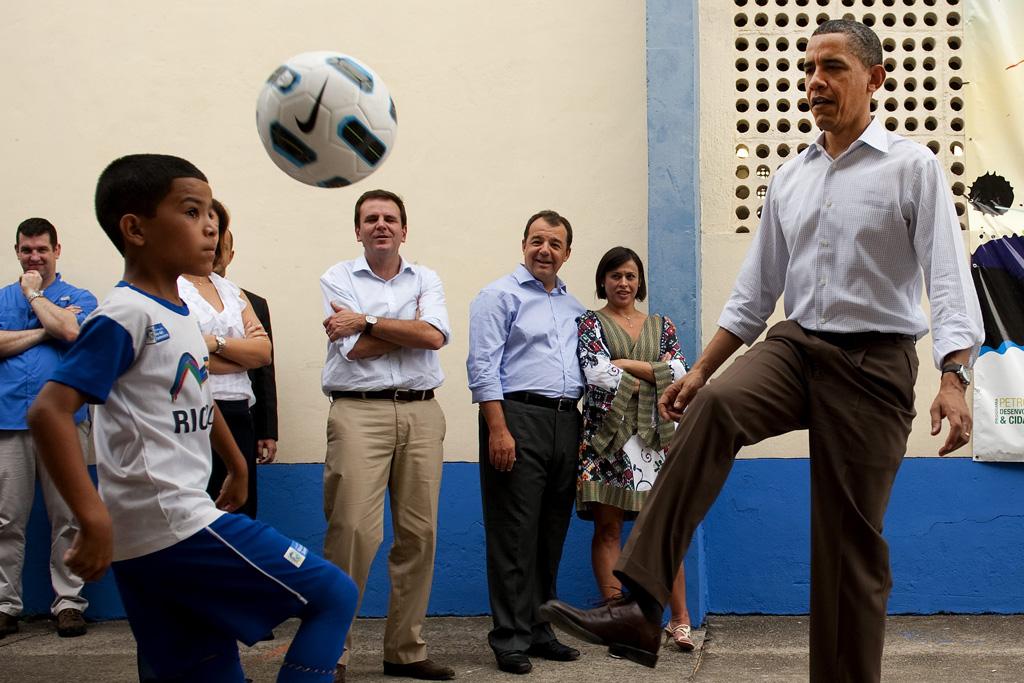
Leading is in part about what stories you tell. President Barack Obama’s story was about what unites us as a nation, and as global citizens, and reflects our values as well as our interests internationally. Donald Trump's is based on a paranoid fear that threatens to create more problems than it solves.
"Terrified of Mexican criminals, he wants to build a wall that will actually lock in more undocumented aliens than it will keep out,” wrote New York Times columnist David Brooks, one week after Trump’s inauguration. “Terrified of Muslim terrorists, he embraces the torture policies guaranteed to mobilize terrorists. Terrified that American business can’t compete with Asian business, he closes off a trade deal that would have boosted annual real incomes in the United States by $131 billion, or 0.5 percent of G.D.P. Terrified of Mexican competition, he considers slapping a 20 percent tariff on Mexican goods, even though U.S. exports to Mexico have increased 97 percent since 2005.”
While pulling out of trade groups, saying the United States will reduce its role at the United Nations, threatening to block refugees and Muslims, bring back torture and black jails, and accusing China of ‘raping’ US industry, President Trump has been bafflingly positive about Russia, and its leader Vladimir Putin. US intelligence agencies say Putin directed efforts to manipulate the US election so Trump would win, and the agencies are now looking into possibly illegal ties between the Russian government and the Trump campaign, and those close to Trump.
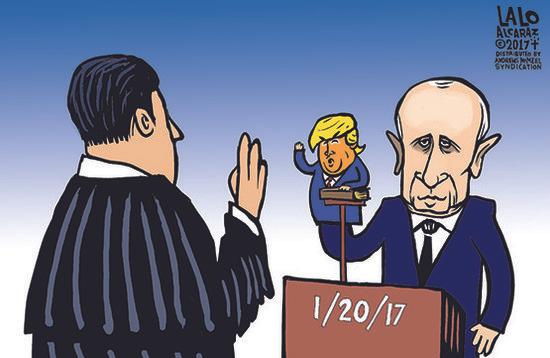
Meanwhile, the world goes on, whatever President Trump chooses to do. A lack of leadership from Washington will prompt other nations, possibly including long-time allies, to create a web of other relationships to bolster economic growth and their national security. In Asia, some are already doing it. Some nations, like India, need little reminding of what protectionism feels like.

India, and many other countries in Asia, are democracies, and the United States has long played a role in supporting democracies around the world, through aid and interaction, but also by leading by example. The role that serious, independent journalism has played in the United States to hold those with power accountable, has long been one such example. But even there, at a time when the government of Indian Prime Minister Modi has been clamping down on journalists and social critics, President Trump’s chief White House strategist Steve Bannon said, not even a week into Trump’s presidency, that the US press should “keep its mouth shut.”
“I want you to quote this,” Mr. Bannon said, in an interview he’d initiated with The New York Times. “The media here is the opposition party. They don’t understand this country.”
This is a stark departure from how every previous US president has dealt with the Fourth Estate. President Richard Nixon had his enemies list, but he didn’t condemn the entire profession of journalism. It is, however, a common practice in authoritarian states to demonize and discredit independent journalists.
The America that Bannon and his boss describe is not one that most Americans or others around the globe recognize, nor are many of President Trump’s solutions ones they support. In a post-inauguration poll by the nonpartisan civic engagement group iCitizen, 63 percent of respondents had an unfavorable view of President Trump, 58 percent said the country is heading in the wrong direction, and 61 percent felt Trump had set a negative tone in his first days.
And so, on the day after the inauguration, in dozens of American cities and towns and in some 30 countries around the world, millions of people marched in support of rights and values long associated with America.
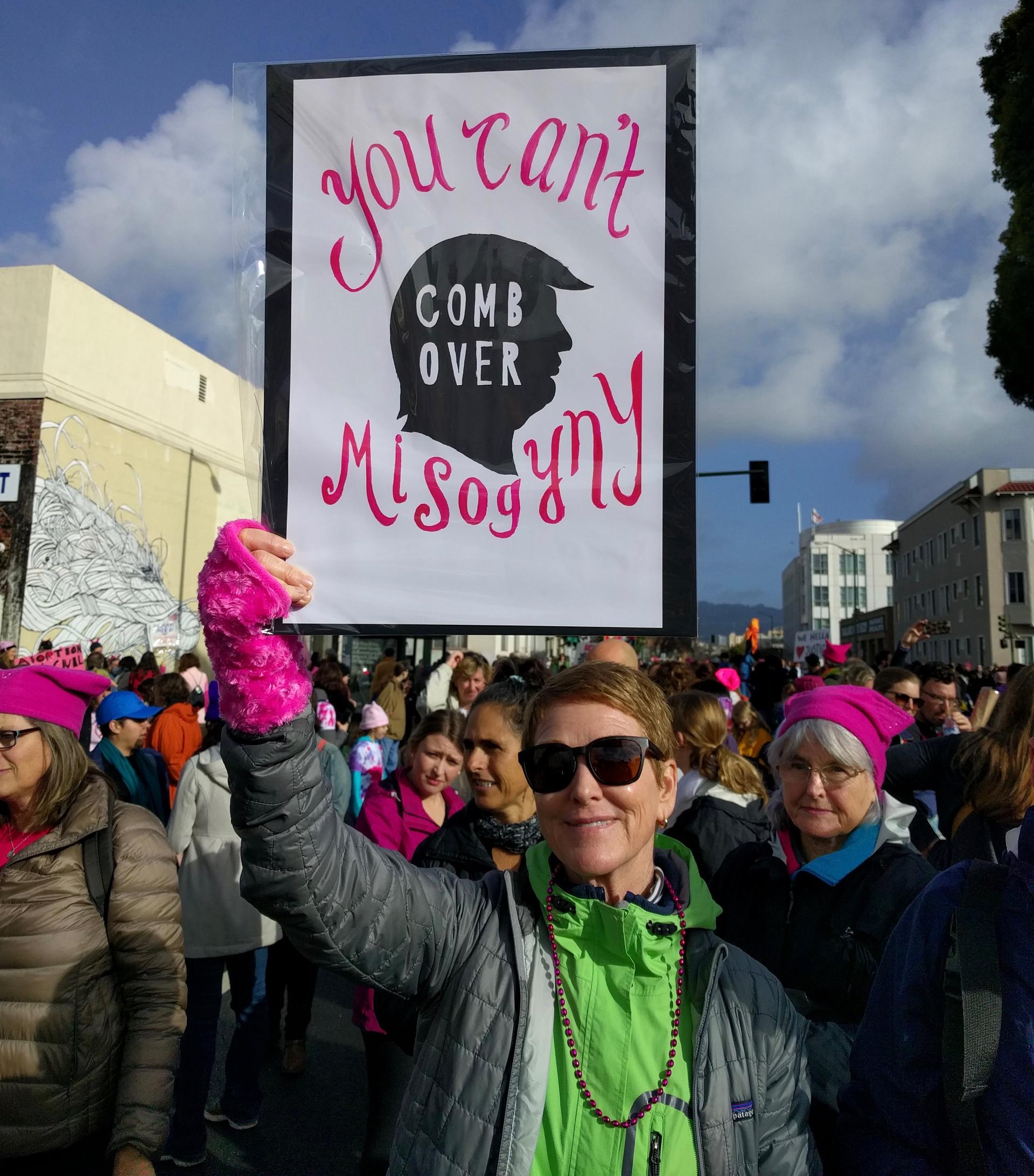
In Oakland alone, east of the San Francisco Bay, more than 60,000 people crowded the streets, so densely packed that for more than an hour, they shuffled forward just a couple of inches at a time.
There was lots of good humor, plenty of pink pussy hats, and memorable signs: “Make America Kind Again,” “Make America Think Again,” “Make America Vote Again,” “You Can’t Comb Over Misogyny,” “Tinkle, Tinkle little czar, Putin made you who you are,” and one, with a photo of Edvard Munch’s most famous painting, that said, “I’d Rather Be Screaming Into the Void.”
One of the marchers was Fred Pinguel, who works with Filipino Advocates for Justice in Oakland. He was born in the Philippines — his family came over when he was 6, and he’s now an American citizen.
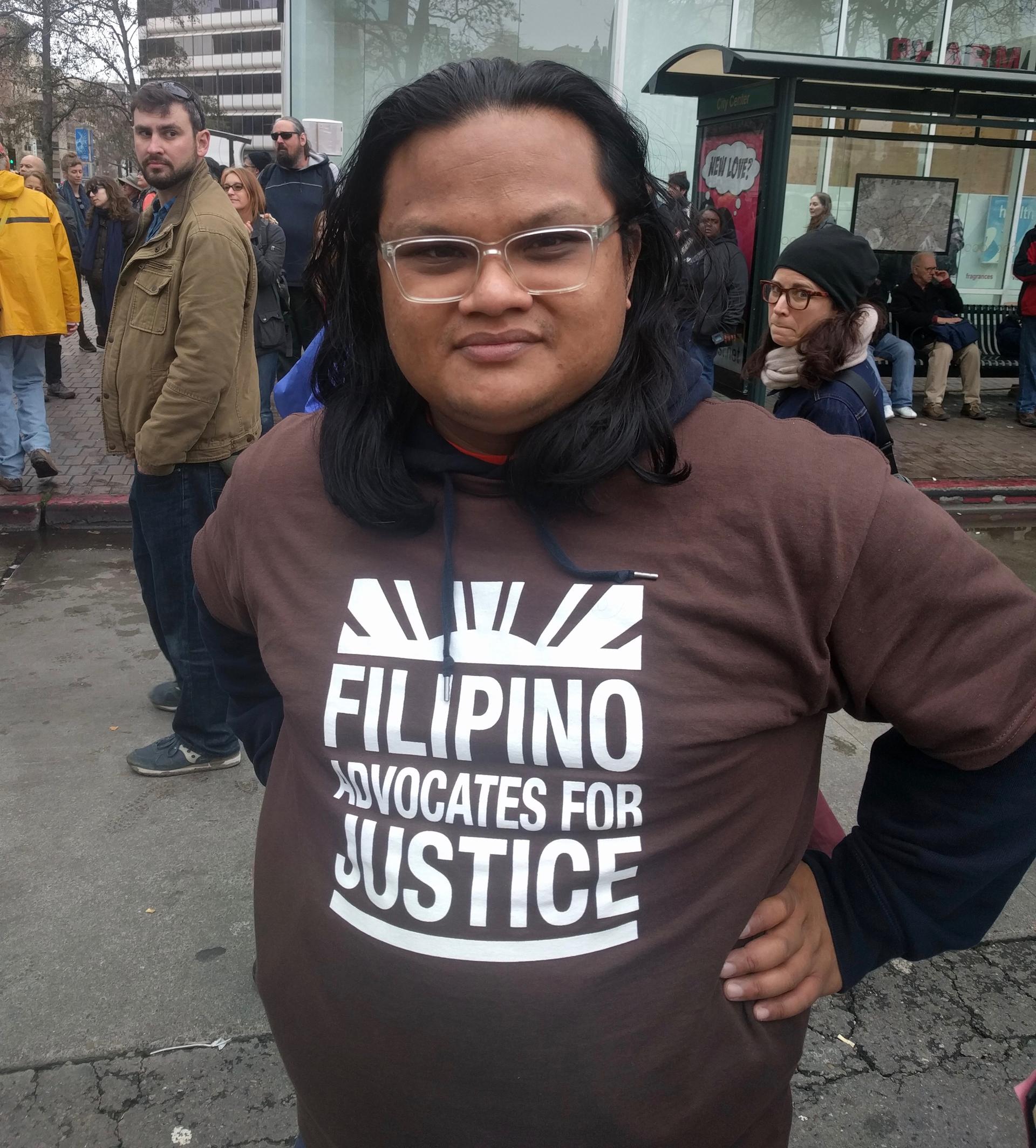
“We know who Donald Trump is, and the rhetoric he’s been espousing, he’s pretty much been the same since Day One. He’s just finding more room to be as radical, and as hateful as possible,” Pinguel said. “What really bothers me personally is how much support there is for that kind of rhetoric, and how much support there is for the kind of policies that that rhetoric is going to create, policies that affect my family directly, and lots of families directly, across all ethnicities and cultures. You know, this is a country of immigrants, which is a cliché, but it’s true.”
From conversations Pinguel’s had with friends and relatives back in the Philipines, he said, it seems “the credibility of the United States is decreasing … and our position as a superpower is being undermined by the caricature that this president has become — how extreme it is, in certain ways, how laughable it is.”
The Philippines is a long-standing US ally — a treaty ally, meaning we’ll come to each other’s defense if attacked. But its current president, Rodrigo Duterte, who’s kind of a politically unconventional tough guy himself, has been cozying up to China, and taking a "what have you done for me lately?" approach to the US.
Japan, another treaty ally, is also wondering what a Trump presidency is going to mean for stability in the Asia-Pacific region. Trump has casually and publicly mused about how maybe Japan should have nuclear weapons, and should fend for itself, or pay more for US protection.
Saiko Reynard, a Japanese citizen who moved to San Francisco in December with her American husband Max Reynard, said she’s worried about the anti-immigrant tone of the Trump Administration, and by its lack of interest in being positively engaged in the world.
“I want America to think more about the other people, because America is a leader in the world, and so they have power to consider the others,” she said. “And I believe America is very thoughtful, and a kind country.”
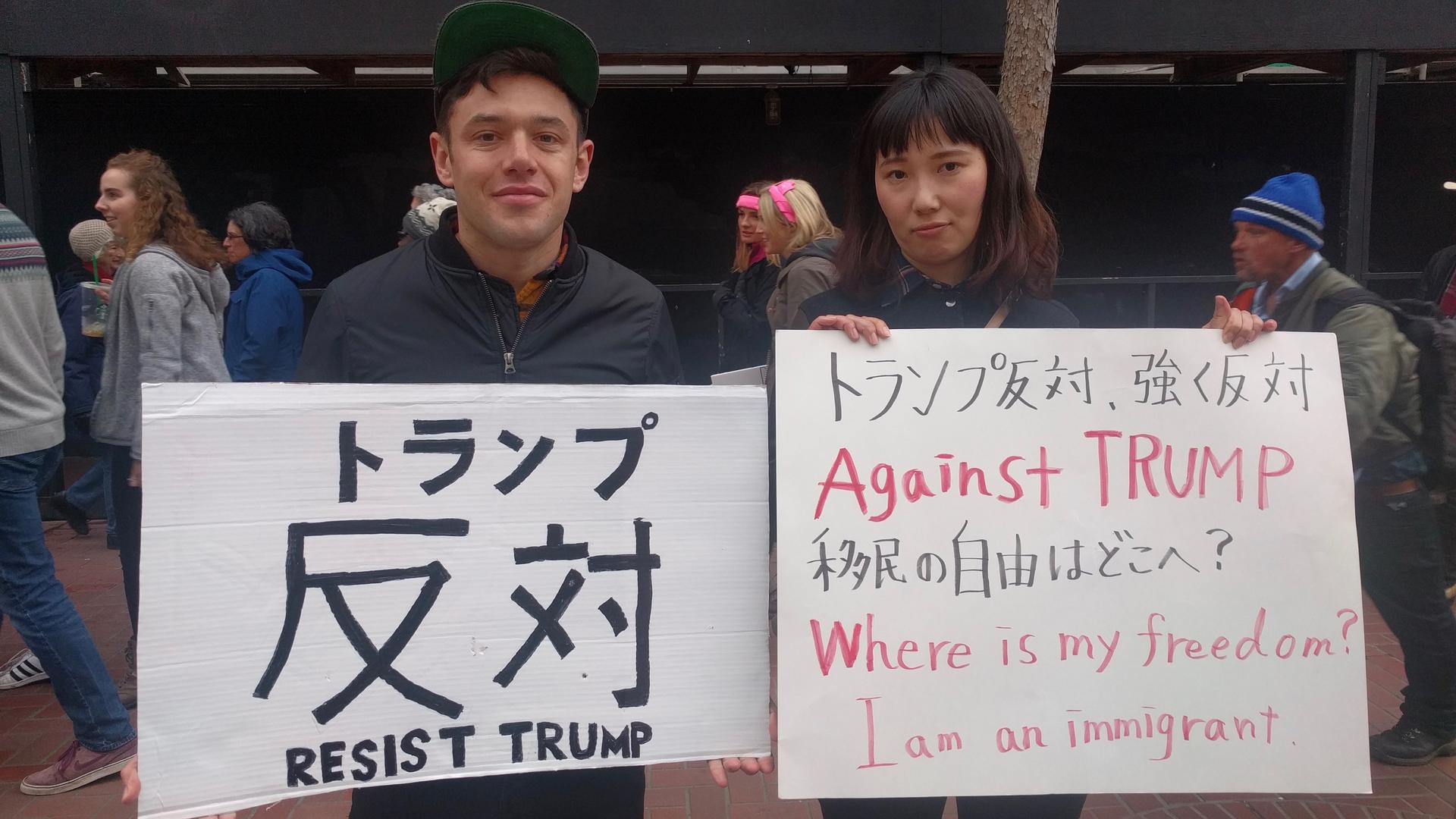
Her husband, Max Reynard, said Trump’s signals to Japan of late have not gone down well, like musing in his campaign that maybe Japan should get its own nuclear weapons and fend for itself.
“Maybe this is not common knowledge, but a lot of things Trump has said have been very hostile to Japan, and have been reported in the Japanese media. For instance, when Obama visited Hiroshima, Trump made some very negative comments at that time. And Japanese people were really moved and really excited when Obama had come to Hiroshima, and that did a lot to further the relationship. And making negative comments will really harm the relationship.”
That visit, by President Obama, was a great example of moral leadership. And Japan’s prime minister, Shinzo Abe, reciprocated a few months later, with the first visit ever by a serving Japanese leader to Pearl Harbor. Showing respect for other people’s pain and loss is not only a decent thing to do, it also can create the kind of goodwill that can get other things done.
President Trump, by contrast, spent his first few days in office, talking about blocking Muslims and refugees from getting visas, and issuing executive orders to, among other things, build a wall across the Mexican border. When he floated the idea that a 20 percent tariff on goods from Mexico would ‘pay’ for the wall, Mexico’s President, Enrique Peña Nieto, cancelled his planned trip to Washington.
The Doomsday Clock, run by the Bulletin of Atomic Scientists, is now 30 seconds closer to midnight, thanks to President Trump’s aggressive pronouncements on Muslims, Mexicans, and more, including climate change.
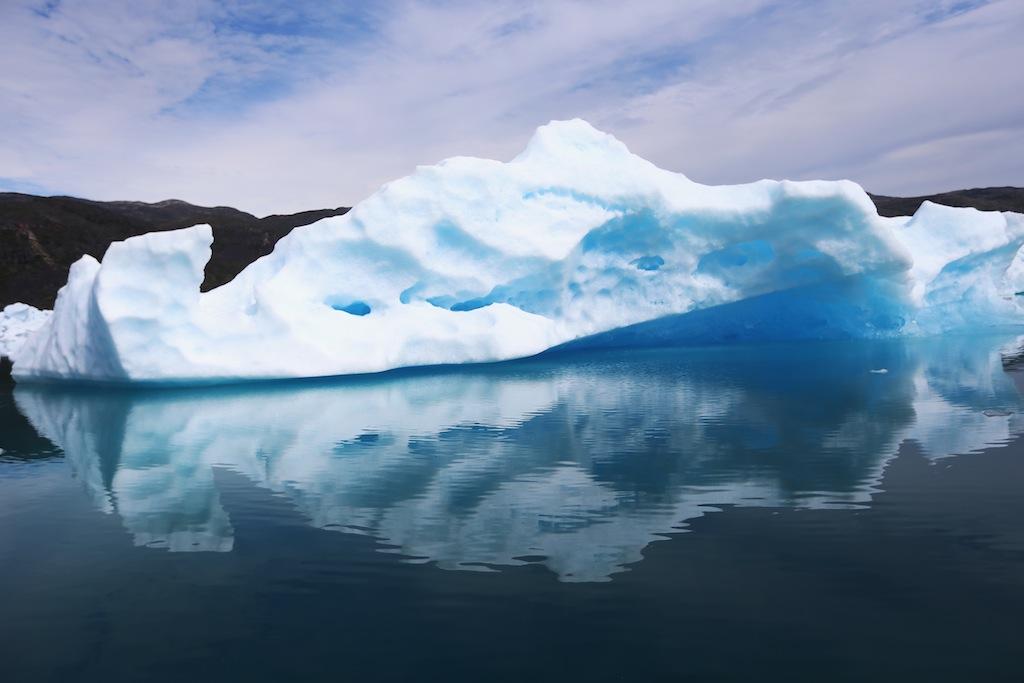
On climate change, America was slow to lead by setting a good example, but it started moving in the right direction under President Obama. Trump, on the campaign trail, scoffed at such efforts:
“Obama thinks the biggest threat we face in the world today is global warming,” Trump told a cheering crowd of his supporters. “Can you believe it?"
At the time, a lot of Trump supporters said, "you liberals take him too literally, but not seriously. We take him seriously, but not literally." President Trump, in his first days in office, has shown himself to be serious, and literal, about rolling back efforts to halt climate change, including talking about pulling out of the Paris Agreement, freezing the work of the Environmental Protection Agency, and effectively gagging it. Trump says he’s pro-business, and businesses shouldn’t have to deal with so many regulations. But representatives of 700 companies have signed a petition, calling on President Trump to take climate change seriously. They have other options, of places to invest, more in line with their own concerns and values.
Europeans have their own concerns, as rising nationalism in several European countries revives memories of a dark past. A spoof video by the Dutch show “Zondag met Lubach” joked around for awhile, in what it said was language President Trump would understand, before ending with a serious message.
“We’ve got a great, great, great dependency on the United States. It’s huge. If you screw NATO, you’re going to make our problems great again. They’re going to be huge. They’re going to be enormous. It’s true. Please don’t.”
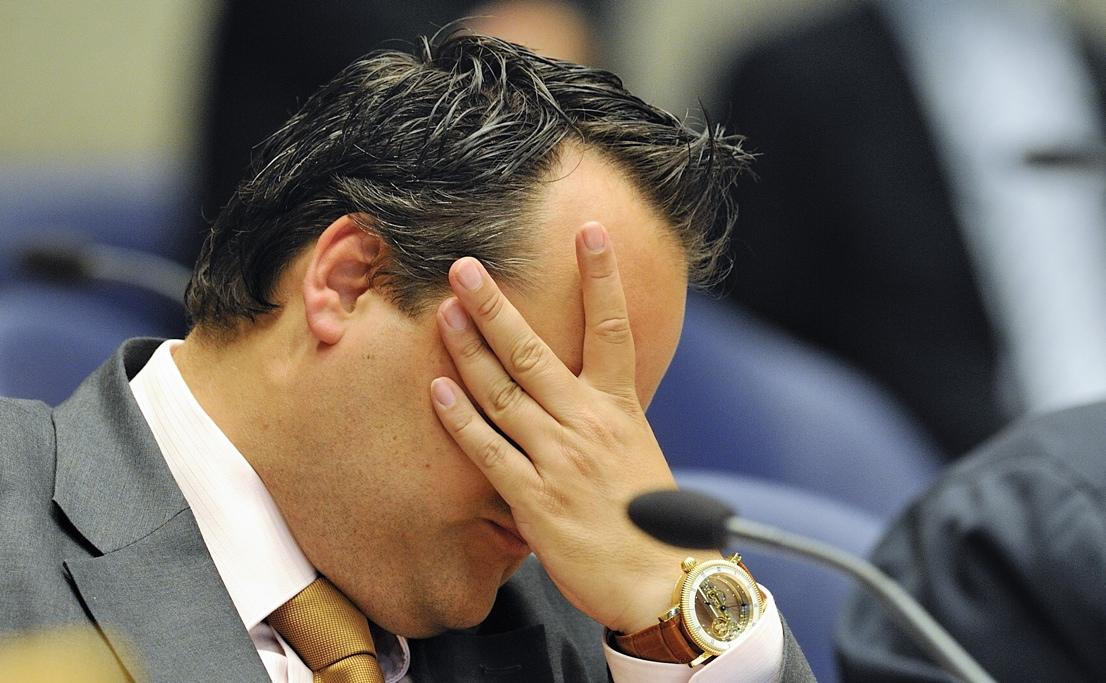
Many Americans are sending their own message to their new president, by protesting, calling their congressmen and women, and speaking out.
“Trump said he’s going to make America great again,” said Fred Pinguel, at the Oakland march. “And that has been interpreted and defined by his followers in a very particular way. But we’re Americans too. And so, he’s got to make it great for us, as well. And if he doesn’t, then we’re going to be here every day, out on the streets, and meeting with politicians, and really availing ourselves of every possible avenue, so we can make sure he’s making America great for everybody.”
The story you just read is available to read for free because thousands of listeners and readers like you generously support our nonprofit newsroom. Every day, the reporters and producers at The World are hard at work bringing you human-centered news from across the globe. But we can’t do it without you: We need your support to ensure we can continue this work for another year.
When you make a gift of $10 or more a month, we’ll invite you to a virtual behind-the-scenes tour of our newsroom to thank you for being with The World.